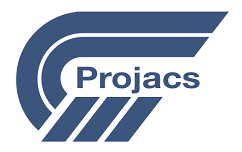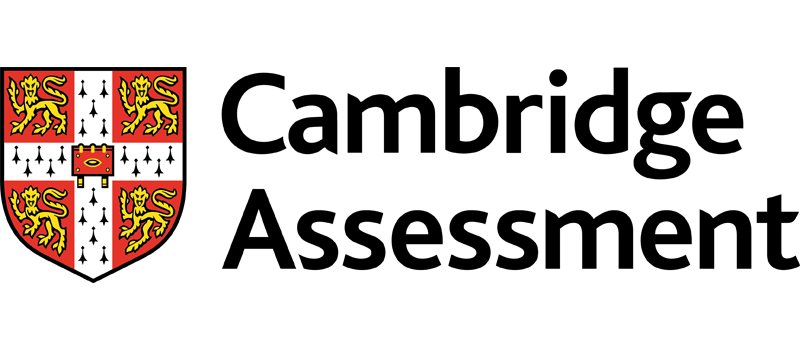
Project Initiation, Planning and Executing (PMP Workshop 1, 2) – Certified Program
Course ID: 2508180101226EGI
Course Dates : 18/08/25 Course Duration : 10 Studying Day/s Course Location: London, UK
Language: Bilingual
Course Category: Professional and CPD Training Programs
Course Subcategories: Project Management and Quality Assurance
Course Certified By: * Projacs Academy
* Professional Training and CPD Programs
Certification Will Be Issued From :
KSA
Course Fees: £8,895.11
Vat Not Included in the price. VAT may vary depending on the country where the course or workshop is held.
Click to Pay
Date has passed please contact us Sales@e-s-hub.com
Course Information
Introduction
The ability to effectively initiate, plan, and execute projects is a cornerstone of success in today’s dynamic professional landscape. Projects serve as the engines of innovation, growth, and operational efficiency across industries, from technology and healthcare to construction and finance. However, despite their importance, many organizations struggle with project failures due to poor planning, misaligned objectives, or inadequate resource allocation. According to the Project Management Institute (PMI), nearly 11.4% of investment is wasted due to ineffective project management practices. This underscores the critical need for professionals who can navigate the complexities of project management with precision and expertise.
Project management is not merely about following a checklist; it requires a deep understanding of frameworks such as PMBOK (Project Management Body of Knowledge) and Agile methodologies, which provide structured approaches to managing scope, time, cost, quality, and risks. Yet, even with these tools at their disposal, many practitioners face challenges in aligning stakeholder expectations, adapting to changing circumstances, or ensuring timely delivery. These gaps often stem from a lack of foundational knowledge or insufficient exposure to real-world applications. This course addresses these deficiencies by equipping participants with both theoretical insights and practical skills to manage projects from inception to completion.
Consider the case of a multinational corporation launching a new software platform. Despite having a skilled development team, the project faced delays and budget overruns due to unclear requirements and poor communication between stakeholders. A certified project manager trained in structured initiation and planning could have mitigated these issues by establishing clear goals, defining deliverables, and fostering collaboration. Such examples highlight the tangible impact of effective project management on organizational outcomes, reinforcing its value as a core competency for professionals.
Mastering the principles of project initiation, planning, and execution offers significant benefits for individuals and organizations alike. For individuals, it enhances career prospects by validating their expertise through certification, positioning them as leaders in their field. Organizations, on the other hand, gain a competitive edge by improving project success rates, reducing costs, and fostering a culture of accountability and innovation. Furthermore, as industries increasingly adopt digital transformation strategies, the demand for skilled project managers continues to rise, making this an opportune moment to invest in professional development.
This course draws upon established theories such as Kotter’s Change Management Model and Deming’s Plan-Do-Check-Act Cycle to provide a robust foundation for participants. It also integrates industry trends like hybrid project management approaches, which combine traditional and Agile methodologies to address complex, multifaceted projects. By blending theory with practice, the program ensures that participants are well-prepared to tackle the unique challenges of modern project environments.
Ultimately, this workshop is designed to empower participants to become catalysts for change within their organizations. Whether leading small-scale initiatives or large-scale transformations, graduates of this program will possess the confidence and competence to drive projects forward, delivering results that align with strategic objectives. Through interactive sessions, case studies, and hands-on exercises, participants will emerge with a comprehensive skill set that bridges the gap between theory and practice.
Objectives
By attending this course, participants will be able to:
Analyze project requirements and constraints to define clear objectives and deliverables.
Design comprehensive project plans using industry-standard tools and methodologies.
Evaluate risks and develop mitigation strategies to ensure project resilience.
Implement effective communication plans to engage stakeholders and foster collaboration.
Apply resource management techniques to optimize team performance and productivity.
Assess project progress against milestones and adjust plans to maintain alignment with goals.
Integrate lessons learned into future projects to enhance continuous improvement.
Who Should Attend?
This course is ideal for:
Project managers seeking to formalize their skills and earn certification.
Team leaders responsible for overseeing project execution and delivery.
Consultants tasked with advising clients on project strategy and implementation.
Professionals transitioning into project management roles from other disciplines.
Training Method
• Pre-assessment
• Live group instruction
• Use of real-world examples, case studies and exercises
• Interactive participation and discussion
• Power point presentation, LCD and flip chart
• Group activities and tests
• Each participant receives a 7” Tablet containing a copy of the presentation, slides and handouts
• Post-assessment
Program Support
This program is supported by:
* Interactive discussions
* Role-play
* Case studies and highlight the techniques available to the participants.
Daily Agenda
The course agenda will be as follows:
• Technical Session 08.30-10.00 am
• Coffee Break 10.00-10.15 am
• Technical Session 10.15-12.15 noon
• Coffee Break 12.15-12.45 pm
• Technical Session 12.45-02.30 pm
• Course Ends 02.30 pm
Course Outlines
Foundations of Project Management
Overview of project management principles and frameworks.
Key phases of the project lifecycle.
Role of a project manager in driving success.
Introduction to PMBOK and Agile methodologies.
Day 2:
Project Initiation
Defining project scope and objectives.
Identifying stakeholders and their expectations.
Developing a project charter.
Conducting feasibility studies.
Day 3:
Project Planning – Part 1
Creating work breakdown structures (WBS).
Estimating time and cost requirements.
Developing a project schedule.
Allocating resources effectively.
Day 4:
Project Planning – Part 2
Risk identification and assessment.
Building risk response strategies.
Quality planning and assurance.
Establishing performance metrics.
Day 5:
Communication and Stakeholder Engagement
Designing a communication plan.
Managing stakeholder relationships.
Conflict resolution techniques.
Facilitating effective meetings.
Week 2
Day 6:
Resource Management
Assembling and motivating project teams.
Delegating tasks and responsibilities.
Monitoring team performance.
Addressing resource constraints.
Day 7:
Project Execution
Implementing project plans.
Tracking progress against milestones.
Managing changes to scope or timelines.
Ensuring compliance with standards.
Day 8:
Monitoring and Controlling
Using Earned Value Management (EVM) for tracking.
Analyzing variances and taking corrective actions.
Reporting project status to stakeholders.
Maintaining documentation and records.
Day 9:
Project Closure
Finalizing deliverables and obtaining approvals.
Conducting post-project reviews.
Documenting lessons learned.
Celebrating successes and recognizing contributions.
Day 10:
Advanced Topics and Certification Preparation
Hybrid project management approaches.
Leveraging technology for project management.
Preparing for PMP certification exams.
Case study analysis and group presentations.



















































